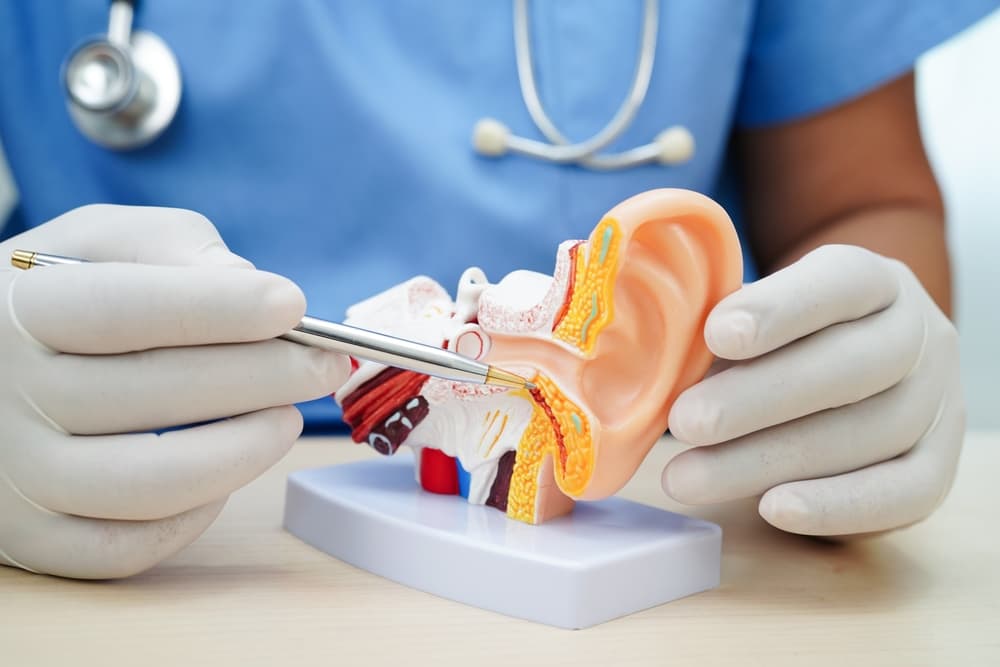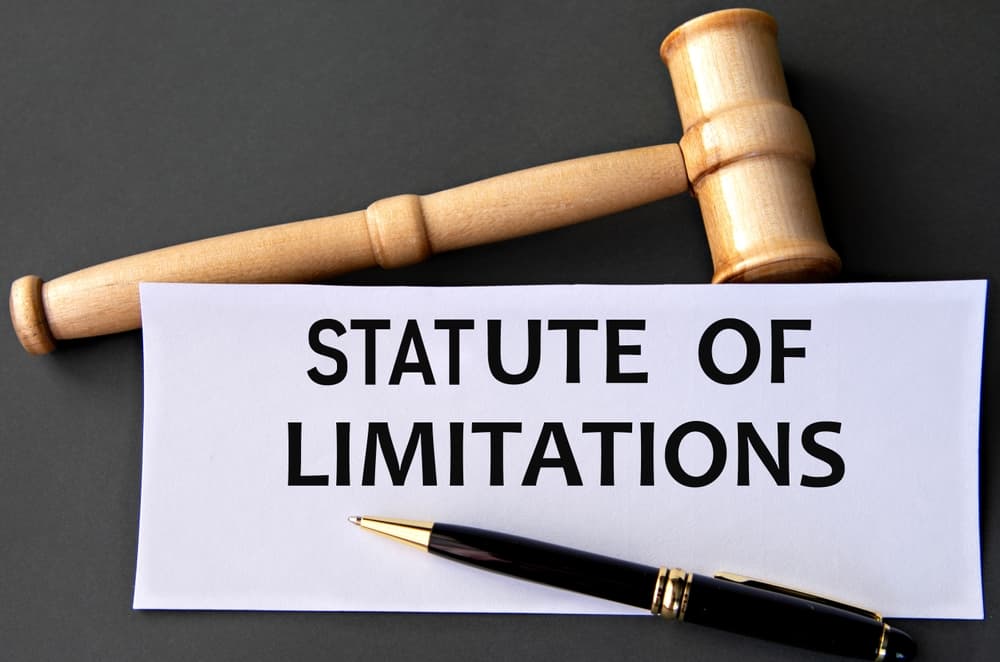Sometimes, treatments intended to resolve one health issue can unfortunately lead to new and potentially more severe complications. That seems to be the story for some people who used Tepezza. One study found that among 26 patients, nearly a quarter developed hearing loss, and over a quarter experienced tinnitus after Tepezza infusions.
Individuals who used Tepezza for Thyroid Eye Disease and subsequently experienced hearing loss may have legal recourse. Eligibility for joining the Tepezza lawsuits generally depends on proving you used the drug and then developed specific hearing problems you didn't have before.
Figuring out the details takes more than a quick guess. If Tepezza left you with hearing damage, exploring your options is the next step. At Lawsuits.com, our network includes lawyers who handle these types of cases. Call us at (888) 984-6195 to speak with a Tepezza Lawsuit Lawyer and discuss your situation.
Tepezza: The Double-Edged Sword for Thyroid Eye Disease
Tepezza (the brand name for teprotumumab-trbw) is an infusion medication specifically approved to treat Thyroid Eye Disease, often called TED.
TED is an autoimmune condition where your immune system mistakenly attacks the tissues around your eyes. This leads to some unpleasant symptoms: bulging eyes (proptosis), double vision (diplopia), eye pain, redness, and swelling.
It was the first drug approved specifically for TED, offering a non-surgical option to reduce eye bulging and potentially improve vision problems. Tepezza works by blocking a specific protein receptor (IGF-1R) involved in the autoimmune process of TED. However, this same receptor is also found in the inner ear, which might explain why the drug could inadvertently cause hearing problems in some individuals. And for many, it did provide relief from those distressing TED symptoms.
But then reports started surfacing. People who received Tepezza infusions began experiencing serious hearing issues. We're not talking about minor, temporary side effects; we're talking about potentially permanent hearing loss and persistent ringing in the ears. This unexpected, severe side effect flipped the script for many patients.
Tepezza's Side Effects

You signed up for Tepezza to get your vision and eye comfort back, not to trade one problem for another. Yet, that's the reality some patients face. The hearing problems linked to Tepezza significantly impact your quality of life.
The main culprits reported are:
- Hearing Loss: This primarily involves sensorineural hearing loss, which happens when there's damage to the inner ear or the nerve pathways from the inner ear to the brain. It ranges from mild difficulty hearing certain sounds to profound deafness.
- Tinnitus: This is the perception of noise, like ringing, buzzing, hissing, or clicking, in one or both ears when no external sound is present. Tinnitus may be intermittent or constant, and its intensity varies. For some, it's deeply disruptive.
Other related symptoms sometimes reported include hyperacusis (where everyday sounds seem intolerably loud) and autophony (hearing your own voice, breathing, or heartbeat unusually loudly inside your head).
These concerns moved beyond patient reports when, in July 2023, the FDA updated the Tepezza drug label. This update explicitly warns about the risk of severe hearing impairment, including permanent hearing loss, and recommends that patients undergo hearing tests before, during, and after treatment. This regulatory step acknowledges the seriousness of the potential risk.
Why the Lawsuits? The Core Allegations
Drugs have side effects; that's not exactly news. Why the lawsuits against Horizon Therapeutics? It boils down to what the company allegedly knew versus what they told doctors and patients.
The central argument in these lawsuits is that Horizon failed in its duty to adequately warn about the severity and potential permanence of the hearing-related risks associated with Tepezza. Plaintiffs claim the company knew, or reasonably should have known through proper testing and monitoring, that the risk of hearing damage was greater and more serious than initially disclosed.
This falls under the legal concept of product liability, specifically claims related to "failure to warn." Manufacturers have a responsibility to inform prescribing doctors and, through them, patients about the genuine risks of their products so people can make informed decisions about their healthcare. The allegation is that Horizon didn't meet this responsibility regarding Tepezza's hearing risks.
People filing these lawsuits are arguing more than just the existence of a side effect; they claim they were deprived of the chance to weigh the true potential cost to their hearing against the benefits for their eyes because the information provided was incomplete or misleading.

The Big Question: Are YOU Eligible for a Tepezza Lawsuit?
There are specific criteria that lawyers look for when evaluating a potential Tepezza case. While every situation is unique, here are the general boxes you likely need to check:
- Proof of Tepezza Use: This seems obvious, but it's step one. You need medical records showing you received Tepezza infusions. Details like dates of infusion, dosage, and the prescribing doctor are important.
- Diagnosed Condition (TED): Tepezza is approved for Thyroid Eye Disease. Your records should confirm this was the reason for your treatment.
- Specific Hearing Injury: This is key. You must have been diagnosed with significant hearing loss (like sensorineural hearing loss) or persistent, bothersome tinnitus after you started Tepezza treatment. A formal diagnosis from an audiologist or ENT specialist is usually required.
- Timing of Injury: The hearing problems must have started either during your course of Tepezza infusions or within a reasonable timeframe after completing treatment. The closer the onset to the treatment period, the clearer the potential link.
- No Significant Prior Issues: Generally, you need to show that you did not have these specific hearing problems before starting Tepezza. If you had minor, pre-existing hearing issues, you might still be eligible if Tepezza caused a significant worsening documented by medical professionals.
- Medical Opinion/Link: While not always strictly required to start the process, having a doctor note a suspected link between Tepezza and your hearing issues strengthens your case. At minimum, the timing and nature of the injury should strongly suggest a connection.
Without this documented evidence, building a case becomes extremely difficult. If you think you meet these criteria, the next step involves talking to a lawyer who handles these specific types of pharmaceutical injury claims.
Navigating the Legal Maze: MDL vs. Individual Lawsuits
Assuming you meet the criteria for eligibility, what does the legal process look like?
In August 2023, the federal court system established a Multidistrict Litigation (MDL) specifically for Tepezza hearing loss lawsuits. This means that numerous individual lawsuits filed in federal courts across the country, all alleging hearing damage from Tepezza, are consolidated before one judge in one court – the U.S. District Court for the Northern District of Illinois. This consolidation is authorized under federal law (28 U.S.C. § 1407) for cases involving common questions of fact.
As of April 2025, there were 213 cases pending in the Tepezza MDL.
It's important to know that an MDL is not a class action lawsuit. In a class action, everyone is grouped into one single lawsuit. In an MDL, your lawsuit remains individual; it's just grouped with others for efficiency during the pre-trial phase. If the MDL doesn't result in a global settlement, individual cases may eventually be sent back to their original courts for trial.
What's on the Table? Potential Compensation
Damages in these types of product liability cases typically fall into two main categories:
- Economic Damages: These are the measurable financial losses you've incurred (or will incur) due to your injury.
- Medical Expenses: Costs for audiologist visits, hearing tests, specialist consultations (ENTs), hearing aids (which are often very expensive and need replacement), cochlear implants in severe cases, tinnitus treatments (masking devices, therapy), and any related medications.
- Lost Wages: If your hearing loss or tinnitus prevented you from working, or forced you to take a lower-paying job, you might recover lost income.
- Loss of Earning Capacity: If your injury permanently affects your ability to earn money in the future, this calculates the potential future income loss.
- Future Medical Costs: Compensation for anticipated ongoing medical needs related to your hearing condition.
- Non-Economic Damages: These compensate for the intangible, non-financial harms that significantly impact your life.
- Pain, Suffering, and Emotional Distress: Compensation for the physical discomfort, emotional distress (anxiety, depression, frustration), and psychological impacts stemming from the hearing loss or tinnitus, including feelings of isolation.
- Loss of Enjoyment of Life: This addresses how the hearing impairment affects your ability to participate in and enjoy daily activities, hobbies, social interactions, listening to music, conversations with loved ones, etc.
- Permanent Impairment/Disability: Compensation for the permanent nature of the hearing loss and its ongoing effect on your life.
The specific amount of compensation varies wildly from case to case. It depends heavily on the severity and permanence of your hearing damage, your age, your occupation, the impact on your daily life, the strength of the evidence linking Tepezza to your injury, and the specific laws of the relevant state.
A lawyer handling your case would work to calculate and justify both economic and non-economic damages based on your unique circumstances and supporting documentation.
Don't Wait: The Ticking Clock (Statute of Limitations)

There's a legal deadline for filing lawsuits, known as the statute of limitations. Miss this deadline, and you lose your right to sue, period. No matter how strong your case might be.
For personal injury and product liability claims like those involving Tepezza, the statute of limitations varies depending on the state where you live or where the injury occurred. Typically, states allow somewhere between two to four years to file a claim.
Many states use a "discovery rule." This means the statute of limitations doesn't begin until the date you discovered your injury (your hearing loss or tinnitus) and you knew, or reasonably should have known, that Tepezza was the likely cause.
If you suspect Tepezza caused your hearing problems, you need to figure out your specific deadline sooner rather than later. Delaying could mean forfeiting your chance to seek compensation entirely. Consulting with a lawyer promptly is the best way to determine the statute of limitations applicable to your potential claim.
Taking the First Step: What to Do Now
First, get organized. Gather every piece of paper related to your Tepezza treatment and your hearing issues. This means:
- Tepezza Records: Find documents showing your infusion dates, dosages, and the name of the prescribing physician and infusion center. Pharmacy records or hospital bills might have this.
- Hearing Diagnosis Records: Collect all reports from audiologists or Ear, Nose, and Throat (ENT) doctors. This includes hearing tests (audiograms) showing the type and severity of hearing loss, tinnitus diagnosis notes, and any physician notes discussing the onset and nature of your symptoms. Dates are extremely important here.
- Pre-Tepezza Hearing Status: If you have any records of hearing tests before you started Tepezza, these are gold. They help establish a baseline. Even notes from routine physicals mentioning hearing status can be useful.
- Your Own Notes: Write down a timeline. When did you start Tepezza? When did you first notice hearing changes? What were the symptoms? How have they progressed? How do they affect your daily life (work, relationships, hobbies)? Be detailed.
Once you have your documents (or at least know where to get them), the next logical step is talking to a lawyer. You need someone who understands pharmaceutical litigation and, specifically, the ongoing Tepezza lawsuits. They will look at your specific situation, review your records, and give you a realistic assessment of whether you have a viable claim.
Hear Your Rights: Take Action on Tepezza
Ready to find out where you stand? Call Lawsuits.com today at (888) 984-6195. Our service connects you with a personal injury lawyer evaluating Tepezza claims.